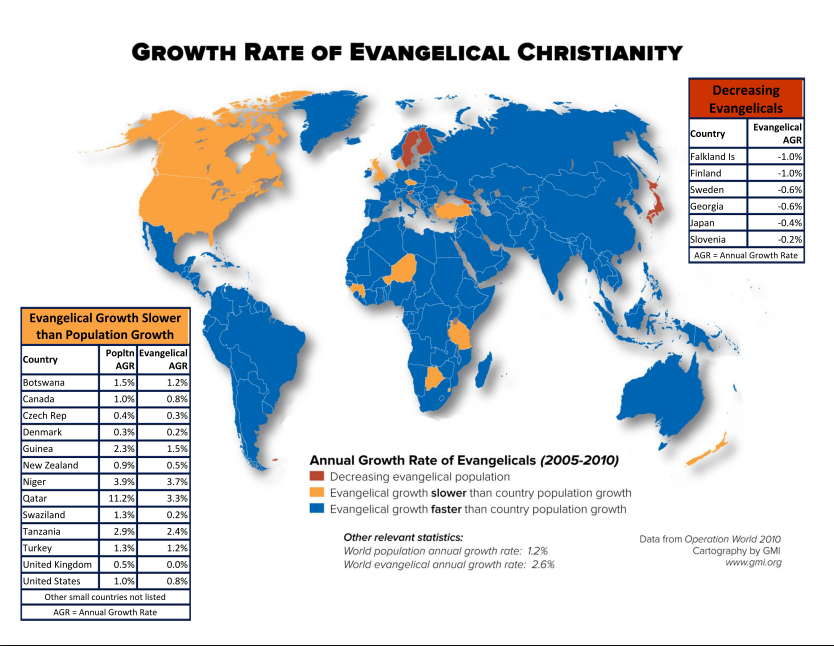Today there are incredible websites with up-to-date statistics on world missions, who has been reached, who hasn’t, and what work is being doing. The Joshua Project is one of the best websites, and I had time to peruse it this week. They also provide the widget that I now embedded in the sidebar, which highlights an unreached people group each day. Please pray for them as they came across your screen!
I’m both astounded by the progress made with the gospel over 2,000 years, and also overwhelmed at how much is left to be done. The church began with 120 followers of Jesus gathered together just before a large Jewish festival called Pentecost (Acts 1:15). At this festival, Peter preached the gospel and 3,000 were saved that day (Acts 2:41).
Importantly, God enabled the apostles to preach miraculously in various languages: “And how is it that we hear, each of us in his own native language Parthians and Medes and Elamites and residents of Mesopotamia, Judea and Cappadocia, Pontus and Asia, Phrygia and Pamphylia, Egypt and the parts of Libya belonging to Cyrene, and visitors from Rome, both Jews and proselytes, Cretans and Arabians—we hear them telling in our own tongues the mighty works of God” (Acts 2:8–11). Here already you see the Gentile mission foreshadowed and God’s heart for all the nations to worship him (see Ps 67): the scattered came to Jerusalem, God enabled them to hear the gospel, and they scattered back to their own nations to proclaim what they heard.
By around AD 300, the gospel was known in every province and every city in the Roman empire. While the number of Christians is conjectural, church historian Philip Schaff estimated that about 1/10 or 1/12 of all Roman subjects were Christians, which would be about ten million people.[1] However, note a new book by Thomas Robinson who challenges the idea that Christianity only flourished in urban centers until this time. He argues the urban and rural centers were more well connected than is often assumed, so if around ten million is correct, then many of these were in rural areas.
So in 270 years, the gospel had spread to and been accepted by about ten million people in urban centers and possibly rural areas.
Fast forward seventeen centuries. Today, there are 16,587 people group in the world. Of these, 6,738 (42.1%) are “unreached.”[2] The total number of unreached individuals is 3.1 billion. A people group is “unreached” if Christians and resources are scarce enough that outside assistance is necessary to make the gospel known to that people.
Papua New Guinea alone (the eastern half of the large island of New Guinea just north of Australia) has 852 different languages, many of which are completely isolated from each other because of the mountainous and village-oriented nature of the country.[3]

Where do we have to go from here? Jesus said that before he returned, “the gospel must first be proclaimed to all nations” (Mark 13:10). The word “nations” probably refers to people groups (see BDAG), but it is unclear what exactly this statement means. To what extent must the gospel be preached to a group? What makes up a people group, today’s definition, or something else? All we can say is that Jesus tells us he won’t return until we accomplish the mission he’s given us!
Here’s what’s surprising for many people: America is not the center of Christianity. Evangelical Christians are growing slower than the birth rate here, while around the world in massive countries such as India and China, Evangelical Christians are growing faster than the birth rate.

These statistics are exciting for two reasons. First, it means God is working around the world in effective ways, calling all nations to himself. It is always good, as an American myself, to be reminded that the world does not revolve around us. Second, it means the harvest is ripe for America, Canada, and England and good preaching, scholarship, and evangelism is needed more than ever.
And they sang a new song, saying, “Worthy are you to take the scroll and to open its seals, for you were slain, and by your blood you ransomed people for God from every tribe and language and people and nation, and you have made them a kingdom and priests to our God, and they shall reign on the earth.”
Revelation 5:9-10
References
[1] Philip Schaff, History of the Christian Church (AP&A, 1991), 2:12. See statements on the spread of Christianity in Justin Martyr, Dial. 117; Apol. 1.53; Tertullian, Apol. 1.21, 37, 41–42; Ad Nat. 1.7; Ad Scap. c.2, 5; Adv. Jud. 7, 12–13; further sources in Schaff, History, 2:7.
[2] This number counts each people group once per country in which they live, meaning some groups are counted twice. Counting them only once, there are 4,105 people groups unreached. “Global Statistics,” Joshua Project, https://joshuaproject.net/people_groups/statistics (accessed March 16, 2017).
[3] “Papua New Guinea,” Ethnologue, https://www.ethnologue.com/country/PG (accessed March 16, 2017).
